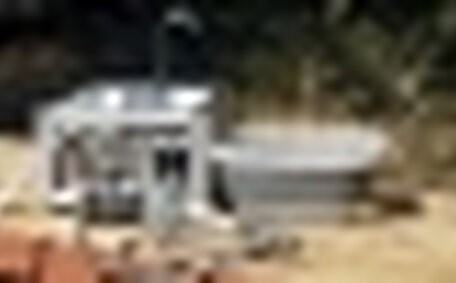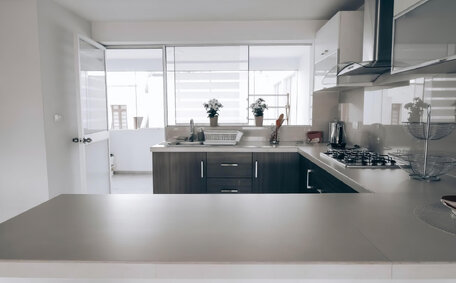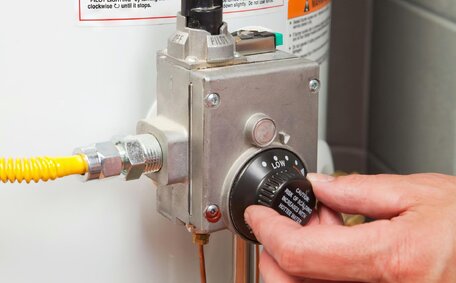Dealing with a blocked drain can be a frustrating and inconvenient experience for any homeowner or tenant. When a sink or toilet suddenly stops draining properly, it often leads to an urgent plumbing issue that needs rapid resolution.
This article will provide a comprehensive overview of the responsibilities around fixing blocked drains in rental properties, to help tenants and landlords alike understand their rights and obligations.
We’ll examine the key factors that determine who is liable for drain blockages in leased homes. We’ll examine the key factors that determine who is liable for drain blockages in leased homes.
We’ll also outline what specific steps both parties should take if a drainage problem arises, and how issues can be prevented through proper maintenance.
With over 10 years of experience providing blocked drain services in the Sydney area, our team at Riverwood Plumbing will detail the best practises for restoring proper drainage and resolving any disputes fairly. By understanding the landlord-tenant dynamics around plumbing repairs, you can ensure smooth resolution of issues and prevent costly damages from occurring.
Common Causes of Blocked Drains
Blocked drains are often caused by a buildup of materials within the pipes that impede the flow of wastewater. Some of the most common culprits for clogged drains in rental homes include:
- Tree roots - Roots from shrubs or trees planted too close to plumbing pipes may grow into drain lines, obstructing water flow.
- Grease and fat - Cooking oils and fats poured down the kitchen sink can accumulate and harden, sticking to pipe walls.
- Hair - Strands of hair collecting in bathroom drains can amass into a thick clump or hairball.
- Foreign objects - Non-flushable items like wipes and feminine products can snag in pipes.
- Soap scum - Excess soap and shampoos can leave a filmy residue that catches passing debris.
- Old pipes - Rusty, cracked, or misaligned pipes allow solids to gather and cause backups.
Repeated blockages may indicate a chronic issue needing pipe repairs. But many causes stem from everyday use, and can be prevented with attentive maintenance of plumbing fixtures and proper disposal habits.
Determining If Tenant or Landlord is Responsible
Determining responsibility for a blocked drain often depends on the cause and location of the blockage:
- If the drain was blocked through the tenant’s actions - such as pouring cooking grease down sinks or flushing unsuitable items - the tenant is usually liable for unblocking it.
- If the blockage is due to damage or defects with the building’s plumbing system, this falls to the landlord or property owner to repair.
- Blockages in internal plumbing pipes specific to the rental unit are often the tenant’s responsibility.
- Blocked main sewer lines servicing multiple units are usually the landlord’s responsibility.
Under most residential tenancy laws, urgent repairs like sewer drain blockages must be addressed by the landlord within 24-48 hours. Tenants should notify their landlord promptly of any plumbing issues.
The tenant still has a duty to take care in using drains properly to avoid blockages. But issues stemming from pipe damage or age are not considered the tenant’s fault.
Checking the tenancy agreement can also provide guidance on drain responsibilities. But urgent plumbing issues ultimately fall to the landlord.
When the Tenant is Responsible
Tenants can be held responsible for blocked drains if the clog was clearly caused by misuse of the plumbing on their part. This includes scenarios such as:
- Pouring cooking oils, fats or grease down the kitchen sink drain
- Forcefully flushing non-flushable items like wet wipes or sanitary products
- Allowing excessive hair, soap scum or food waste to accumulate in sinks or drains
- Flushing toys, dental floss, paper towels and other unsuitable objects
Under the NSW Residential Tenancies Act, tenants have a duty to avoid damaging the property. Intentionally pouring fat down a drain or flushing inappropriate materials shows neglect on the tenant’s behalf. Repeated blockages caused in this manner may be grounds for the landlord to issue lease violation notices.
However, urgent plumbing issues like sewer drainage problems still fall under the landlord’s responsibility for timely repair, regardless of what caused the blockage. While tenants should try to prevent clogs by using drains properly, only intentional and improper use makes them directly liable.
When the Landlord is Responsible
While tenants can be held liable for avoidable drain blockages they directly cause, landlords ultimately bear responsibility for restoring proper plumbing functionality in their rental units. There are several cases where blocked drains fall under the landlord’s obligations:
- Tree roots infiltrating and cracking external drainage pipes. As landlords are responsible for external maintenance, they must cover repairs.
- Blockages within internal or external pipes due to wear and tear, defect, or damage not attributable to the tenant’s actions.
- Sewer drain lines servicing multiple units are usually considered part of the building’s core plumbing infrastructure. Their repair falls to the landlord or body corporate.
- Drainage issues stemming from faulty construction or faulty products installed by the owner.
Under the NSW Residential Tenancies Act, urgent plumbing repairs must be carried out by landlords within 24-48 hours. This applies to blocked toilets, sinks, tubs, laundries or any fixture where water is leaking. Tenants should notify the agent or landlord as soon as an issue arises.
While tenants shouldn’t intentionally misuse drains or flush unsuitable objects, only reasonable care in using plumbing fixtures is required. Any underlying faults with pipes that lead to blockages will ultimately require the landlord to resolve.
The Tenant’s Rights and Responsibilities
Tenants have certain rights and responsibilities when it comes to maintaining drains in a rental property:
- Tenants must avoid intentionally pouring fats or oils down drains, flushing unsuitable objects down toilets, or allowing excessive buildup of hair and debris.
- Under the NSW Residential Tenancies Act, tenants must not intentionally damage the property, including the drainage system.
- However, tenants are only required to provide reasonable care. Occasional accidents or buildup through regular usage are generally not considered tenant neglect.
- Tenants should promptly inform the landlord or agent of any plumbing issues like blocked drains or leaks as soon as they occur.
- Tenants have a right to have urgent repairs, including drain blockages, addressed by the landlord within 24-48 hours as per the Residential Tenancies Act.
- Tenants can follow up with formal repair requests in writing if landlords fail to respond promptly, and may be able to claim compensation for neglect.
- While tenants should avoid misusing drains, the landlord is ultimately responsible for repairing defects and damage to drainage pipes that are beyond the tenant’s control.
By understanding these rights and obligations around plumbing repairs, tenants can ensure urgent issues get proper attention while also doing their part to prevent avoidable blockages.
The Landlord’s Obligations and Liabilities
As owners of rental properties, landlords have certain legal obligations relating to maintenance and urgent repairs that can impact their liability if neglected:
- Under the NSW Residential Tenancies Act, landlords must ensure the property is reasonably clean and fit to live in at the start of a tenancy.
- Landlords are responsible for covering repairs to core building infrastructure like water pipes, sewer lines, gas lines, electrical systems etc.
- Urgent repairs such as blocked or broken drains must be carried out by the landlord within 24-48 hours of notification.
- Landlords who fail to perform urgent repairs in a timely manner under the Act can face fines of up to $2,200.
- Tenants can arrange urgent repairs themselves and bill the landlord if the issue is not resolved promptly.
- Landlords may be liable for damage to tenant belongings or illness caused by neglected sewage or water leaks.
- Blocked drains affecting multiple tenants may allow them to withhold rent until the landlord carries out repairs.
While tenants have a duty of care, landlords ultimately bear responsibility for maintaining a property’s plumbing system and addressing urgent issues. Knowing these obligations helps ensure landlords respond appropriately when plumbing problems arise.
Resolving Disputes Over Blocked Drains
Disputes over responsibility for blocked drains can arise between landlords and tenants if the cause is unclear. However, these issues can usually be resolved through proper communication and by following standard procedures:
- The tenant should immediately notify the landlord or property manager of any blocked drain or urgent plumbing issue.
- The landlord is obligated to arrange inspection and repairs within 24-48 hours under NSW tenancy laws.
- If responsibility is uncertain, the plumber can often determine the likely cause upon inspection, such as pipe damage vs blockage from misuse.
- For disputes over who will cover the costs, Consumer Affairs NSW mediates disputes regarding repairs and maintenance issues.
- The NSW Civil & Administrative Tribunal also hears tenancy disputes and makes binding rulings if an agreement cannot be reached.
- Tenants can request urgent repairs be compensated if the landlord fails to respond promptly.
- Landlords and tenants should communicate in good faith to clarify the cause and reach a resolution.
While blocked drains can be contentious, by following proper procedures both parties can avoid undue stress. Seeking professional advice and communicating politely is key. If issues remain unresolved, government bodies are equipped to assist and make fair determinations.






